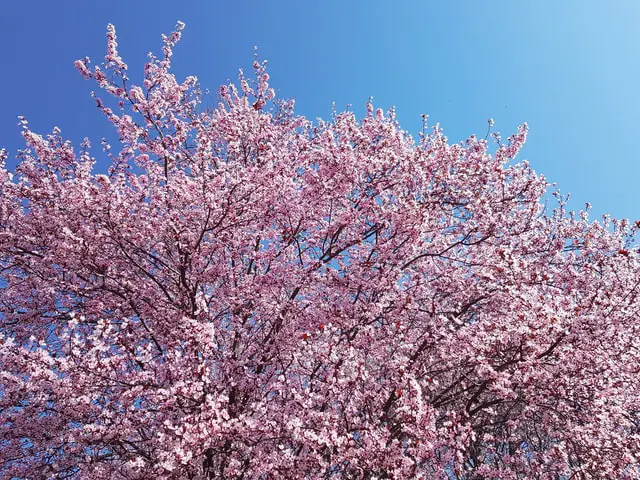This article will give you all of the knowledge you need on the Japanese word haru, including its Japanese definition and translation, example sentences, and more!
What does haru mean?
Haru (春、はる)is a noun that means spring (the season) or springtime in Japanese. The springtime, especially the month of April, has a special significance in Japanese culture. It is effectively the beginning of the new year both at school and in business. The famed hanami flower-viewing events also take place at this time of the year.
Note that haru can also be a verb, taking on the meaning of to stick on/glue on (written as 貼る)or alternatively to stretch (written as 張る). In today’s article though, we will focus on its main meaning – spring.
Haru = Spring

The Japanese noun haru is the word for spring in the literal sense. It can also take on a more figurative meaning, which we will discuss later
Let’s look at some examples of how haru is actually used.
To make it easier for you, I have written each sentence in full Japanese kanji in the first line, followed by roman letters (romaji), and hiragana, with the English meaning coming last.
私は春になると花粉症が酷くなる。
Watashi wa haru ni naru to kafunsho ga hidoku naru.
わたしははるになるとかふんしょうがひどくなる。
My hay fever gets really bad in the spring.
春が一番好きな季節です。
Haru ga ichiban suki na kisetsu desu.
はるがいちばんすきなきせつです。
Spring is my favorite season.
日本の春は寒い天気もあれば、暑い天気もある。
Nihon no haru wa samui tenki mo areba, atsui tenki mo aru.
にほんのはるはさむいてんきもあれば、あついてんきもある。
Springtime weather in Japan can be hot or cold.
日本の春と言えばお花見だよね!
Nihon no haru to ieba ohanami da yo ne!
にほんのはるといえばおはなみだよね!
Spring in Japan is all about hanami, isn’t it?
Haru: The springtime of life
Haru can also refer to one’s youth (i.e. the springtime of life) or the peak of a certain experience. This is a more formal or literary usage, but it is worth knowing about as it speaks to the Japanese mentality of spring representing a special time, which is nonetheless fleeting in nature.
人生の春は10代と言っても過言ではないでしょう。
Jinsei no haru wa jyudai to ittemo kagon de wa nai deshou.
じんせいのはるはじゅうだいといってもかごんではないでしょう。
It would not be an exaggeration to call the teenage years the springtime of one’s life.
- Discover the Best Things to Do near to Tokyo station: A Guide to Tokyo’s bustling center - January 15, 2023
- Maximize your JAL Mileage Bank (JMB) Miles: A Complete Guide on Earning, Redeeming, and Hacks - January 15, 2023
- Discover the Best Things to Do in Harajuku: A Guide to Tokyo’s Trendiest Neighborhood - January 15, 2023